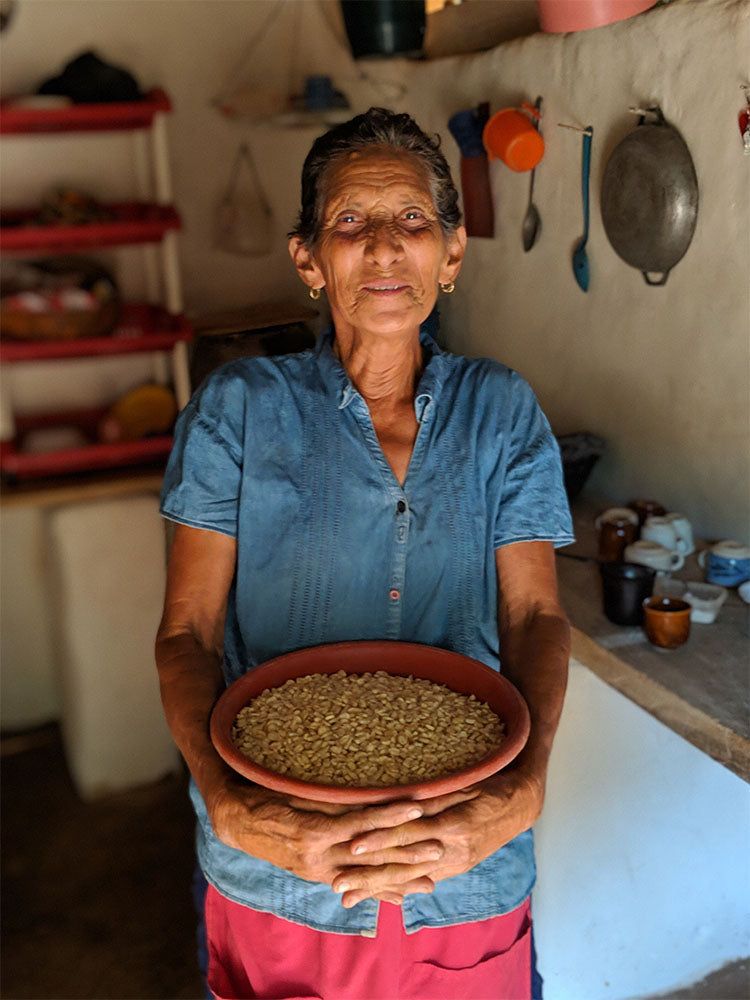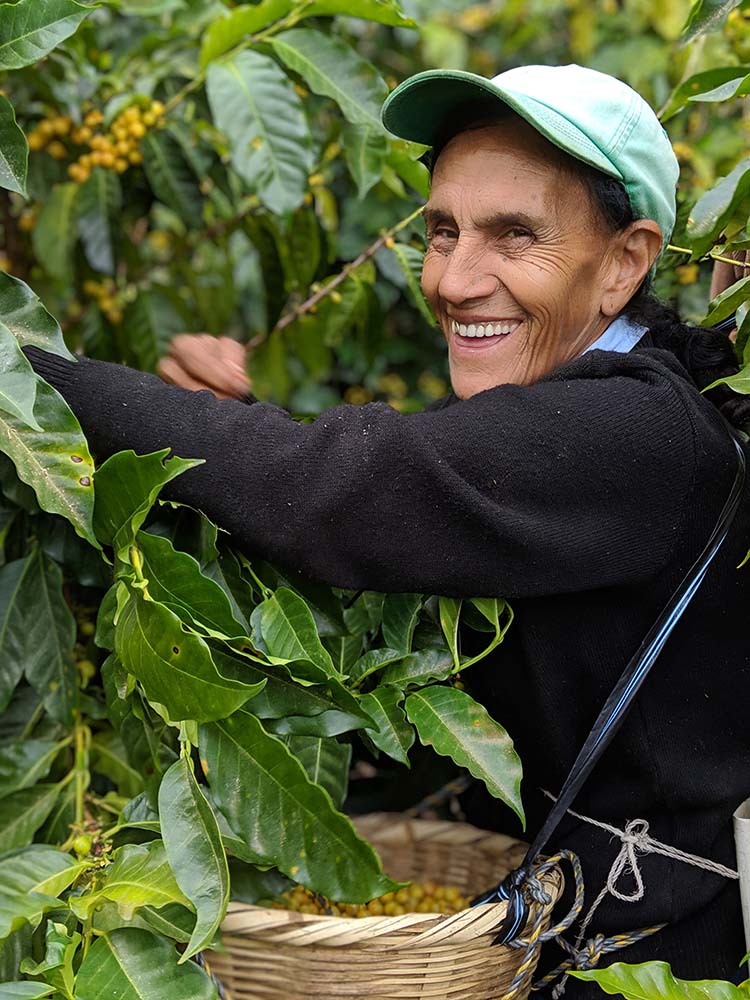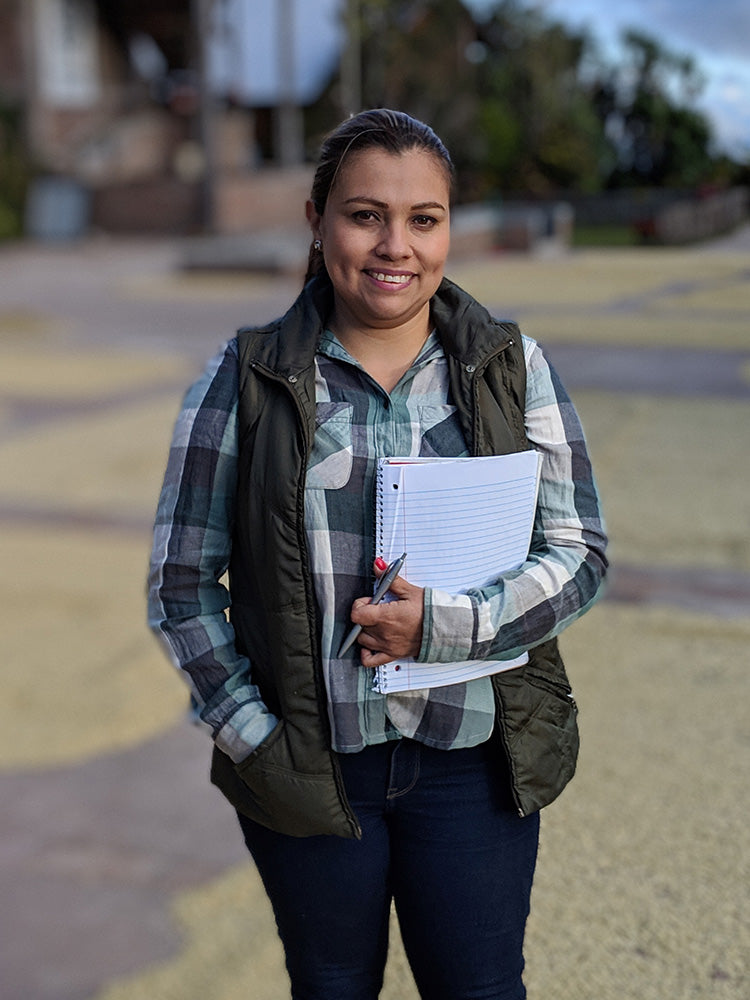
San Lazaro Coffee is committed to our quadruple bottom line:
PEOPLE
PURPOSE
PLANET
PROFIT
Purpose
While we aim to grow world-class coffee, our greater purpose is to provide meaningful, transformational employment. We live out our Christian faith daily through our workplace culture—built on compassion, respect, and the belief that every life has eternal worth.
People
We believe people matter more than profit. Our mission begins with empowering women through dignified work. That’s why our female-led team earns wages nearly double the regional average, allowing them to dream bigger and live better. Their expertise and commitment are poured into every cup, producing coffee that doesn’t just taste good—it changes lives.
Planet
We take seriously our role as stewards of the earth. Our farm is home to the source of the Rio Coco Segovia, one of Central America’s most vital rivers. We cultivate our coffee without harmful chemicals, protect our employees from dangerous exposures, and care for the land using eco-friendly machinery, organic fertilizers, and wastewater treatment systems. Our shade-grown methods preserve the region’s flora and fauna, maintaining biodiversity in a delicate ecosystem.
Profit
We chose to forgo Fair Trade certification not because we lowered our standards, but because we surpassed them. Rather than pay for a label, we use those funds to invest directly in our workers and small-scale producers. By processing, exporting, and warehousing our own beans, we eliminate the middleman and ensure profits return to the people and communities where our coffee originates.
Our Beans
Two Varieties - Two Unique Processes
Caturra Variety
This Arabica variety offers smooth citrus accents and chocolate notes, refined through a classic fermented-washed process that emphasizes clarity and brightness.
Catimor Variety
Naturally dried with the fruit intact, our Catimor is bursting with deep cherry, chocolate, and subtle plum. A labor-intensive process reveals complex flavors rarely found in this regional staple.

From Waiting to Thriving
In the small village of Jayacayan, where job opportunities are scarce and most women are expected to stay at home, Nancy Mondragón has learned that hope can be planted like a seed. At 28 years old, she lives with her husband, their little girl, and her in-laws in a modest home where every bit of income matters.
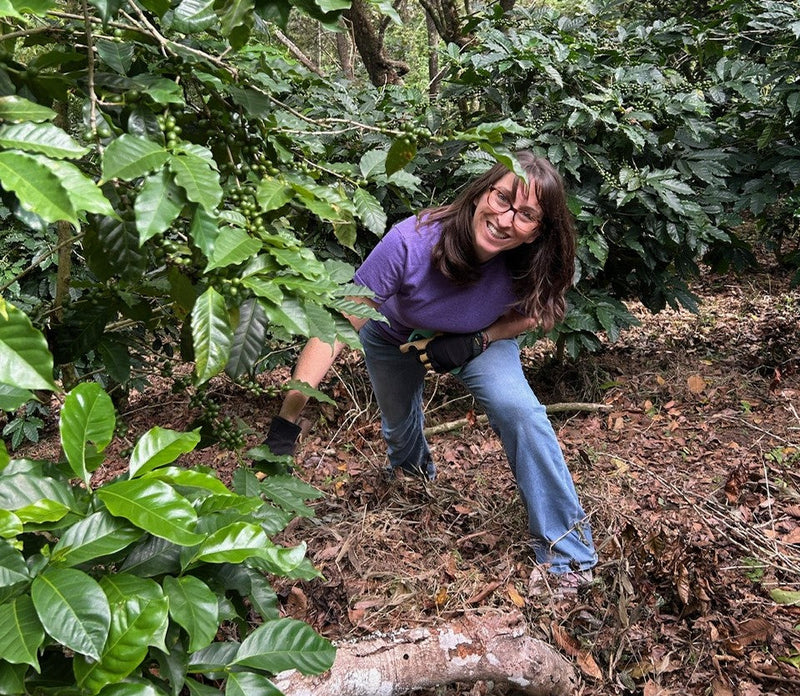
Rebecca's Day on the Farm Confirms What Makes Us Different
I recently had the privilege of traveling to Honduras with a group from my church. One morning, we volunteered on the San Lázaro coffee farm. It was only three or four hours—hardly a full day—but those hours changed how I’ll look at my morning coffee forever.
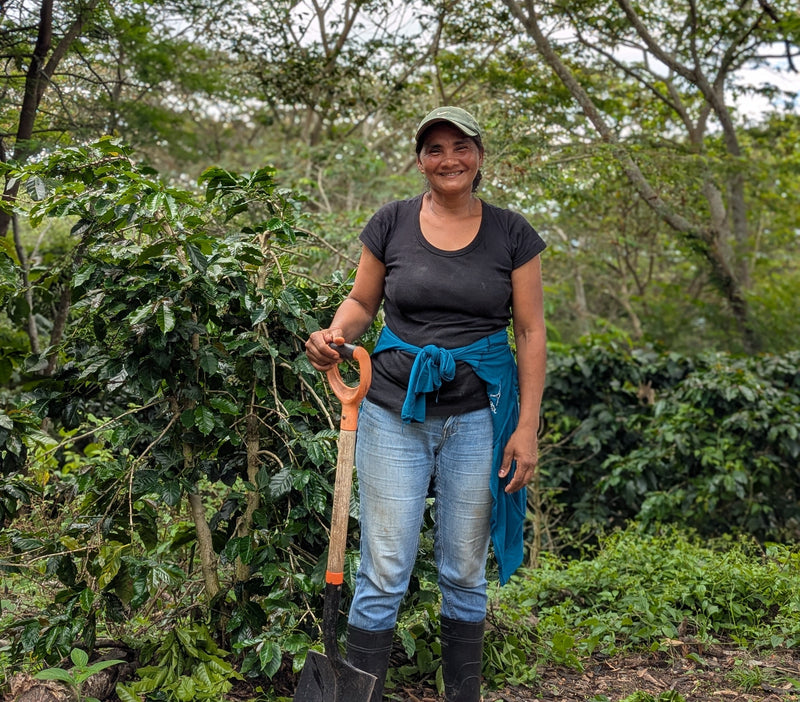
The Courage of Starting Over
When life gave Sandra Hernández every reason to give up, she chose something else: courage. She didn’t wait for a rescue. She didn’t ask for pity. When hardship shattered the life she knew, she took her youngest daughter by the hand, left everything behind, and decided to begin again — trusting that Christ would walk with her every step of the way.



